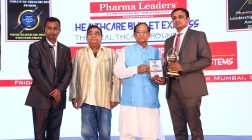Drug price control order: Pharma lobbies move Delhi high court

Two pharmaceutical industry associations have moved the Delhi high court, challenging the drug price regulator’s recent move which brought 50 non-essential drugs under price control. Indian Pharmaceutical Alliance (IPA) and Organization of Pharmaceuticals Producers of India (OPPI) argued that the National Pharmaceutical Pricing Authority (NPPA) does not have the power to decide on the essentiality of drugs. By adding drugs from the non-essential segment into the price control list, the petition said, NPPA has overruled the authority of the department of pharmaceuticals, which finalizes the essential medicines list. On 10 July, NPPA notified price control on 50 new drugs, mainly in the therapeutic segments of diabetes and cancer, citing wide variation in their retail prices. Some 108 brands of these 50 drugs are currently sold in the country. The NPPA order will reduce their prices by 10-35%.
The associations argued that National Pharmaceutical Pricing Authority does not have the power to decide on the essentiality of drugs
India capped prices of 50 diabetes and heart treatments last week, with limits possible for other medications too. Photo: Bloomberg Mumbai: India’s widening of price controls to drugs with revenues of about $915 million adds pressure on the local units of global manufacturers to boost sales volumes. India capped prices of 50 diabetes and heart treatments last week, with limits possible for other medications too. Paris-based Sanofi SA’s Indian business is worst hit based on maximum retail prices and would have lost Rs.139 crore of sales in the past year under the curbs, market researcher AIOCD AWACS estimates. “Multinationals will have to go for volumes,” said Sarabjit Kour Nangra, an analyst at Angel Broking Ltd in Mumbai. “Their pricing is out of sync. Product differentiation in a market that’s generic is very low.” The curbs are the first on treatments outside a list of drugs deemed essential in India, where companies such as Novartis AG and Pfizer Inc. have had patents challenged as the government seeks affordability. The National Pharmaceutical Pricing Authority signalled on 10 July it may add caps on cancer, HIV, tuberculosis, malaria, asthma and vaccine treatments. “The 50 molecules initially targeted by the regulator have sales of Rs.5,500 crore or 6% of India’s drugs market,” Nomura Holdings Inc. said 13 July, citing AIOCD AWACS data. Analysts Saion Mukherjee and Lalit Kumar said while the earnings impact may not be large, there’s a risk of more controls. Companies affected India’s Emcure Pharmaceuticals Ltd, Zydus Cadila, Ranbaxy Laboratories Ltd and Lupin Ltd are affected, as well as Sanofi India Ltd and the local units of Abbott Laboratories and AstraZeneca Plc, according to AIOCD AWACS. “We will be joining the industry in voicing our concerns regarding this move of the NPPA,” Sanofi India said in an e- mailed statement. “We will ensure that there is no change in the quality, availability and delivery of our medicines to physicians and patients across India.” Sanofi India’s share price slid 10.2% on 14 July, the most since March 2008, and is down about 9% this week, while the S&P BSE Healthcare Index has risen 0.5%. The drugs regulator said in its 10 July statement that there are huge inter-brand price differences in branded generics, which indicates severe market failure as the different brands of the same drug are identical medicines. It fixed the ceiling price for each molecule at 25% above the simple average of all the brands in that category. Growing challenge India’s Drug Prices Control Order of 2013, which came into effect in July 2013, had earlier set ceiling prices for 348 essential medicines. Last week’s imposition of wider curbs will probably be challenged by industry bodies as the regulator used a provision that allows it to apply limits in extraordinary circumstances, Motilal Oswal Securities Ltd. said in a 14 July note. If the order stays, the local units of global companies will have to boost the number of product launches, offer bigger portfolios of treatments and make their sales agents more productive, according to Angel Broking’s Nangra. “Enoxaparin injection, an anticoagulant sold in India by the originator Sanofi and a number of generic drugmakers, is among the most affected by the new controls,” Nomura said. Emerging markets have become increasingly challenging for global drugmakers as nations from India to China seek wider access to treatments, which has prompted some companies to explore ways of lowering prices. Country’s allure Basel-based Roche Holding AG last year said it wouldn’t pursue Indian patents on blockbuster cancer drug Herceptin, enabling a generic copy to come to market. Even as companies face challenges, analysts also see potential in the Indian market. “India’s economy and its long-term growth prospects are so great that there isn’t a high probability of any large manufacturer with emerging markets aspirations withdrawing,” said Mark Clark, an analyst at Deutsche Bank AG in London. Drugs sales were worth Rs.1 trillion in the 12 months through June, based on maximum retail prices, AIOCD AWACS figures show. Growing access to health care and increasing demand in rural areas are set to bolster the size of the industry, according to PricewaterhouseCoopers. “It’s not a market that you can ignore,” said Michael Leuchten, an analyst at Barclays Plc in London. “But you need to be careful of how you market your innovative products in India. If you’re willing to sell cheaper in India, there is a risk of spill-over into other markets, and of course regulatory uncertainty.”










